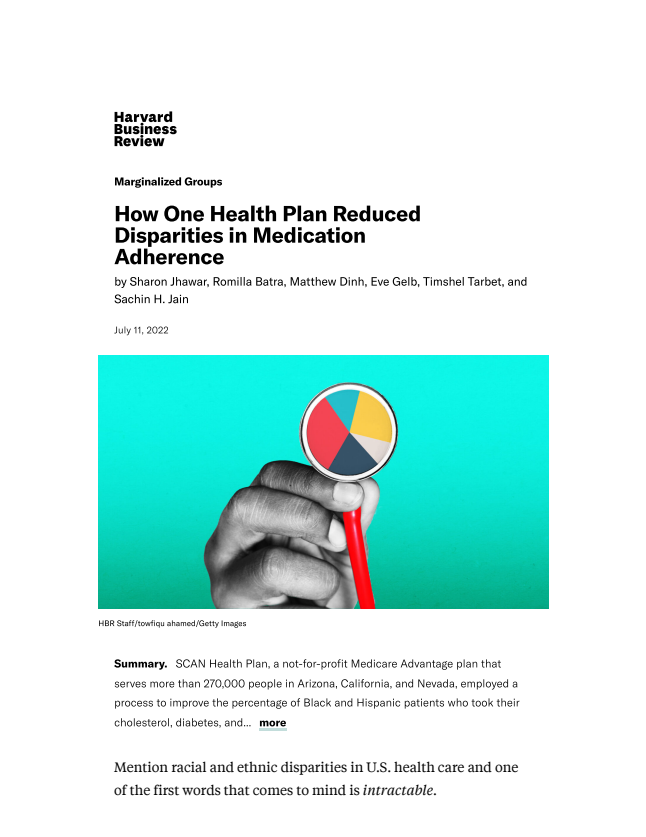Headline
One health plan’s approach to addressing racial and ethnic disparities in medication adherence rates offers insights on levers to address racial inequities.
Context
SCAN Health Plan, a non-profit Medicare Advantage plan in California, Arizona, and Nevada, detected disparities in medication adherence between white members and Black and Hispanic members when reviewing their annual quality scores for Medicare Advantage and Part D Star Ratings programs. This article reviews the organization’s data on medication adherence, describes factors related to lower adherence among Black and Hispanic members, and outlines their approach to address the disparities.
Findings
To improve medication adherence for Black and Hispanic members, SCAN Health Plan: (1) tied 10 percent of senior managers’ yearly bonuses to reductions in medication adherence disparities; (2) conducted member interviews and listening sessions with Black and Hispanic pharmacy employees to understand the reasons for non-adherence; and (3) recruited diverse staff and trained them in cultural humility to improve relationships with members. After eighteen months and a roughly one-million-dollar investment in implementing these strategies, SCAN reduced the racial and ethnic medication adherence gap by 35 percent. SCAN is using this multi-faceted strategy to improve diabetes control among Hispanic members and vaccination rates among Black members, among other areas where inequities exist.
Takeaways
Other health plans can apply lessons from this model to decrease disparities and increase medication adherence in communities of color.


